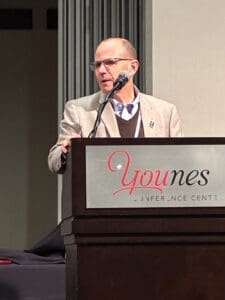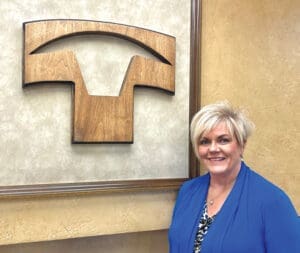By Jim Whitt, Contributing Editor
I was on a conference call as part of my preparation for speaking at a staff development meeting for a trade association. The CEO and a couple of senior staff members were on the other end of the line. My parting question was, “What’s the most important thing you want your people to take away from my presentation?”
The CEO didn’t hesitate, “I want each of them to believe that what they do is important.”
To drive that point home in my presentation, I decided to share this story about my friend Kent Stroman. Kent grew up working in his family’s business. They cleaned pens in feedyards, then hauled and spread the manure on farmers’ fields. After Kent graduated from high school and headed off to college, he continued working in the family business during his summer breaks. Up until then he had thought of his job in the manure business as just a menial form of manual labor. But his college experience had started him thinking about what he was really doing with his life.
During one of those summer breaks Kent had an epiphany: “I’m not just hauling manure,” he thought, “I’m helping feed the world.” In the fields where he applied manure, crops were grown. And crop yields are improved when manure is applied. Higher yields result in more people being fed. That’s important. And it was then that Kent Stroman determined that he would not waste his life doing anything unimportant.
The workplace is filled with people who don’t think what they are doing is important. If they don’t believe what they’re doing is important, then they aren’t very motivated. If they’re not very motivated, then they aren’t very happy. If they aren’t happy, they become apathetic and performance suffers. They start looking for other jobs. If you look at this from an organizational standpoint and multiply it times several employees, the result is reduced productivity, increased absenteeism, increased turnover and poor morale. All of which affects the bottom line.
So, if you don’t think your work is important, don’t you think it’s worth asking why? And if you’re an employer, don’t you think it’s worth asking that same question?
In The Denial of Death, Ernest Becker writes, “People are capable of the highest generosity and self-sacrifice. But they have to feel and believe what they are doing is truly heroic, timeless and supremely meaningful. The crisis of modern society is precisely that people no longer feel heroic.”
Now, most people wouldn’t consider spreading manure as meaningful or heroic. And it isn’t, unless you understand why it’s important. Feeding the world is truly heroic, timeless and supremely meaningful. And manure is critically important to feeding the world.
That brings me back to Kent. True to his word, he would not be deterred by anything that was not important. After graduating from college, he spent many years as a fundraising professional at Oklahoma Wesleyan University before launching a very successful career as a fundraising consultant for nonprofit organizations. His purpose in life is to equip, inspire and encourage. Kent has equipped, inspired and encouraged countless nonprofit organizations to raise millions of dollars. That enables those organizations to positively impact the lives of the people they serve.
Although I spent many years selling feed in the same area where Kent grew up, our paths never crossed until we got acquainted while working on a consulting project several years ago in Tulsa.
Recently, Kent and I have been discussing how we might collaborate to reach a wider audience in both of our businesses. When I told him about the CEO’s statement about wanting his staff to believe that what they do is important, the light bulb came on. That was the inspiration that changed the way we were thinking about our collaboration.
We decided that we needed to create something much bigger than what we had been talking about. What if we created a hub that provided businesses with the resources they needed to help their employees understand and truly believe that what they do is important? Imagine the impact that would have. Employees would be more engaged and more motivated. The business would experience higher productivity, less absenteeism, less turnover and improved morale. All of which affects the bottom line. So, that’s what we’re doing — it’s called The Significance Project.
Is what you do important? It’s an important question. But the more important question is, do you know why?





